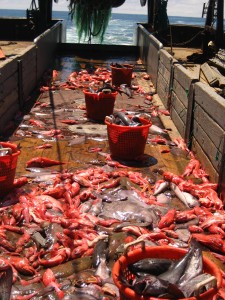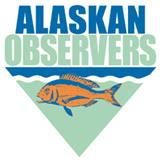 Description of Work:
Description of Work:
Trawlers on the West Coast fish with individual Catch Shares from the Government; these vessels are required to carry observers at all times when they are fishing. These vessels typically range in size from 50-75 feet and make trips of 3-5 days in length. Catch Share Observers can expect to work at-sea 15-20 days per month, gathering fishing effort and location information, sampling for species composition, and collecting biological data from both prohibited and target species. While living and working in their home-port, Observers live on-call, ready to provide coverage at short notice. Observers in this program are also trained as Catch Shares Shoreside Monitors, increasing their employability by augmenting their work at-sea with on-shore opportunities.
Location of Work:
Following a three week training in Newport OR, Catch Share Observers will be required to relocate to a home port in Washington, Oregon, or California for the duration of their contracts. Possible locations include: Neah Bay and Westport, Washington; Astoria, Newport, Coos Bay, and Brookings, Oregon; and Crescent City, Eureka, Fort Bragg, San Francisco, Halfmoon Bay, and Morro Bay, California.
Contract Information:
AOI will begin doing interviews in Oct 2023 for a training that starts in Feb and March 2024.
Compensation and Benefits:
The compensation package is a combination of a base salary, which observers receive regardless of how many days in a month they are deployed to vessels, plus additional pay for at-sea days.
Base salary = $2125 per month;
Starting sea-day pay = $140 per day;
Starting Compensation (based on an average of 15 deployed days per month) = $4225 per month.
Observers receive incremental salary increases depending on the amount of time they have spent under contract. Currently, our top sea-day pay for experienced Catch Shares Observers is $195 per day.
Health insurance is also offered. Observers receive up to $450.00 for relocation expenses, are reimbursed for meal expenses incurred during travel to and from deployments outside their home ports, and are compensated for mileage driven during deployment-related travel outside their home ports (observers must provide their own automobiles). Observers can also participate in AOI’s 401-k plan after working for 4-months.
The National Marine Fisheries Service provides observers with survival suits, life-vests, and hard hats, along with all sampling equipment.


 +1 888-317-9343
+1 888-317-9343 
